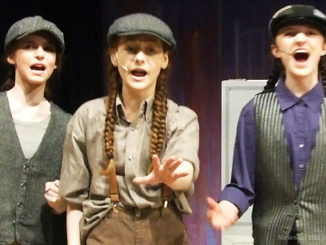
On April 1, “Tre Maison Dasan” debuted on PBS. The film focuses on the criminal justice system and how incarceration has impacted families — specifically the three boys for whom the film is named. The executive producer of the project is Andrew Freiband, a 1993 Cornwall graduate.
The film’s director, Denali Tiller, met the boys while researching a program in Rhode Island that helps parents in prison cope and communicate with their kids. Realizing the kids don’t have much of a voice, Denali focused on the three boys, allowing them to guide the direction of the film through their stories.
Production began in 2015 and finished last year. Over 350 hours of footage was recorded and edited to about a 90-minute documentary. The kids were able to visit their parents weekly, so that provided some structure for Denali and the film crew to follow them and tell their story.
As executive producer, Freiband had a hand in almost everything. He was not involved with the kids as a producer, but he was present as an advisor, supporter, and friend, and even filmed one of the scenes.
Once the film was complete, Freiband’s role changed to impact producer, which means putting the film in context to give it meaning.
“If you are in prison, you don’t have access to most cable television or access to the internet,” Freiband said. “We wanted incarcerated people to see the film. PBS happens to be available in prisons. So PBS was something we pursued pretty actively. Fortunately they selected the film.”
A wide audience was important because five million kids in the United States have parents in prison, said Freiband. Statistically, 1 out of 14 American kids have an incarcerated parent. The odds increase to 1 in 8 American kids if they have black or brown skin.
One of the goals in creating the film was to shift the stigma off kids who have incarcerated parents.
“There’s a misconception that if kids have incarcerated parents that child is more likely to go to prison themselves,” Freiband said. “That’s actually not true and research has proven there is no correlation between parental incarceration and a kid’s criminal justice involvement. It’s a matter of community support.”
Another goal was to show the impact isn’t just on the kids with incarcerated parents. Their behavior and emotional health is affected and that affects that child’s peers as well.
“The film is not strictly about mass incarceration but about kids and parents and the relationship between them,” Freiband said. “We need to hear from children about how we support them through those traumas and how it affects each of us as citizens.”
To watch the film online, visit pbs.org/independentlens/watch-video. Stream the video for free through April 14.



